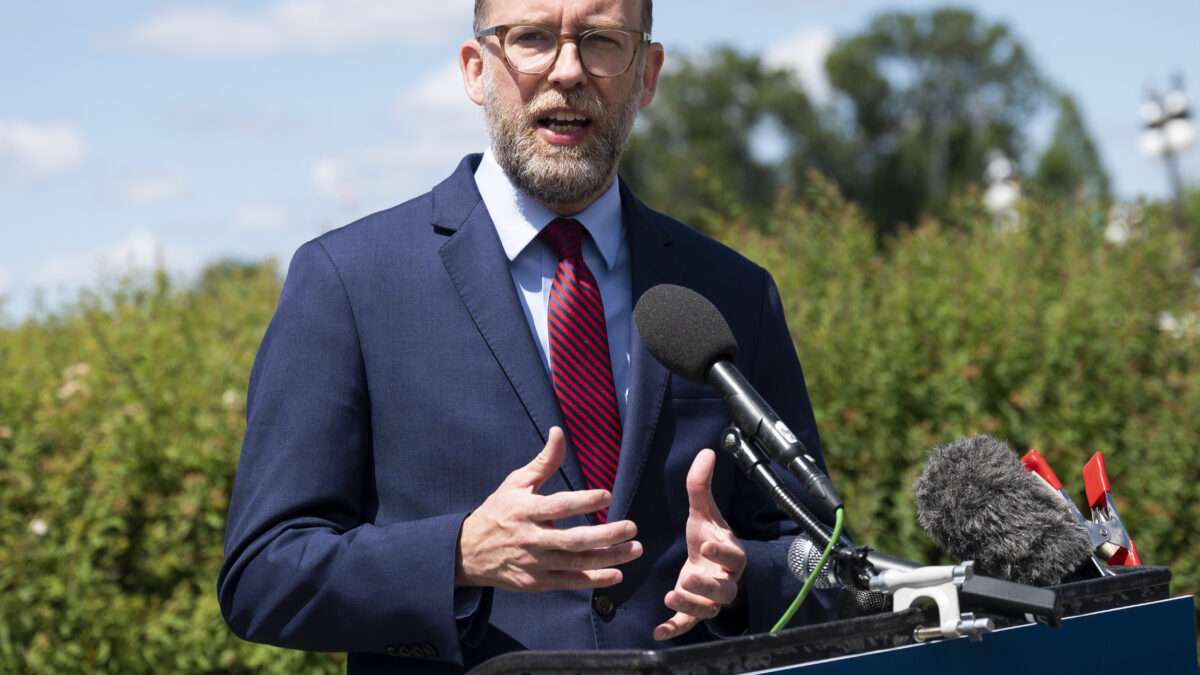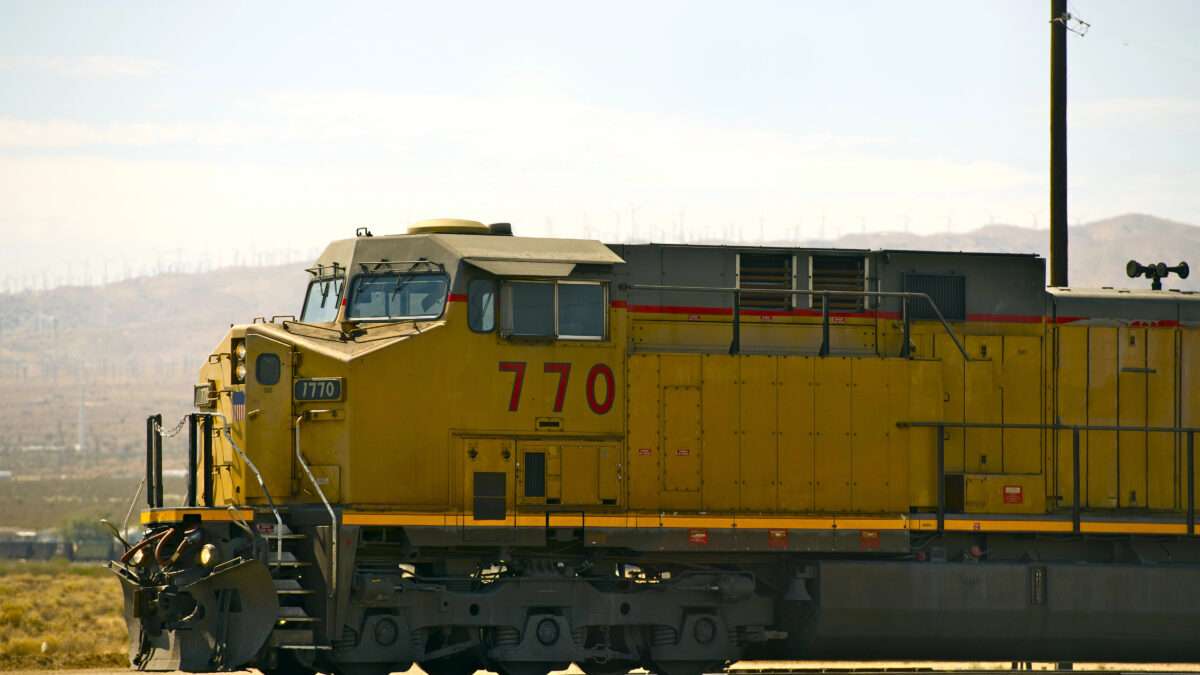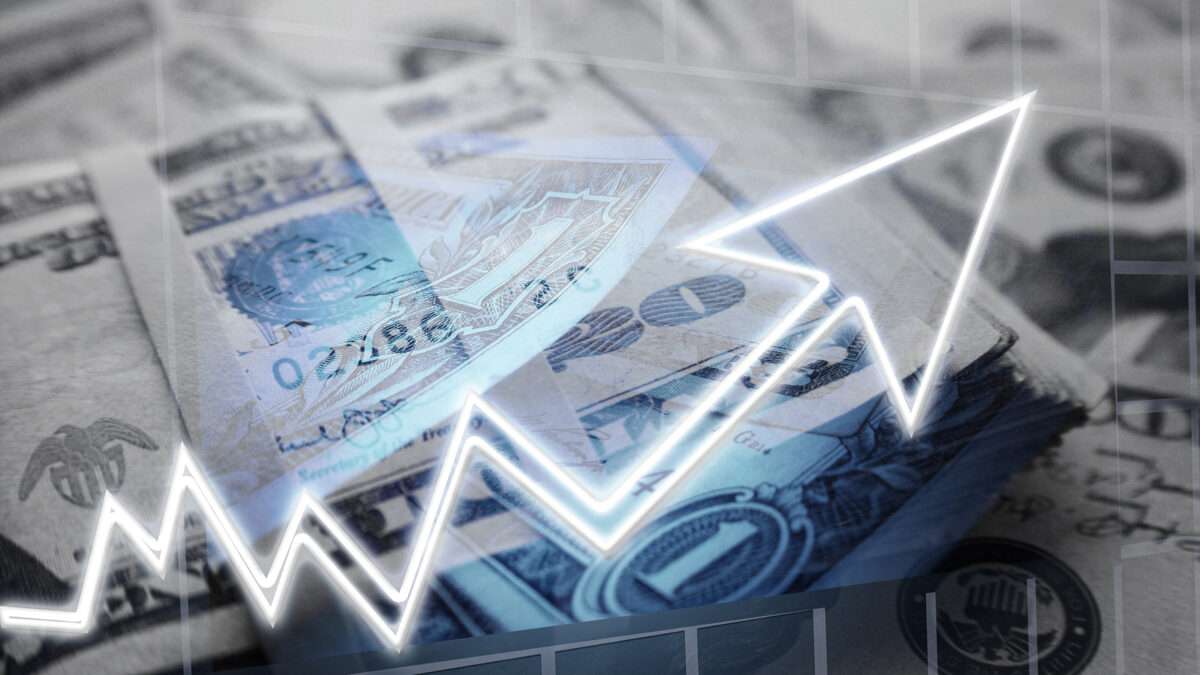Age Check Laws Are a 'Back Door' to Banning Porn, Project 2025 Architect Says in Hidden Camera Video

Age verification laws have been sweeping the country the year, as states push to require social media platforms and adult-oriented websites to card their users. Rather than check IDs, some major porn platforms have simply been pulling out of states where these laws are enacted.
This "is entirely what we were after," said Republican operative Russell Vought in a hidden-camera video released last week.
The video was recorded by reporters from the British nonprofit Centre for Climate Reporting. Posing as the relatives of a fictitious conservative donor, the reporters talked with Vought in a D.C. hotel suite in July and, last Thursday, posted a recording of this conversation.
'We're doing it from the back door'
In a portion of the video, Vought—who served as policy director for the Republican National Committee (RNC) platform rewrite this year—talks about why activists have been pushing age verification laws.
"We're doing it from he back door. We're starting with the kids," Vaught said. "We'd have a national ban on pornography if we could, right? So, like, we would have, you know, the porn companies being investigated for all manner of human rights abuses."
A national ban on porn would, of course, run up against the First Amendment. So savvy anti-porn activists have taken to pushing age verification laws instead.
"We came up with an idea on pornography to make it so that the porn companies bear the liability for the underage use, as opposed to the person who visits the website [having to] certify that 'I am 18," Vought told the undercover Centre for Climate Reporting staffers. "We've got a number of states that are passing this and then you know what happens is the porn company says 'We're not going to do business in your state'—which, of course, is entirely what we were after."
Who Is Russell Vought?
Vought is the founder of the Center for Renewing America, a right-wing think tank whose "mission is to renew a consensus of America as a nation under God," per its website. In May, he was appointed policy director of the RNC's platform committee.
Vought was previously an official in the Trump administration's Office of Management and Budget (OMB), eventually serving as OMB director from July 2020 to January 2021.
But Vought is probably best known as one of the architects of Project 2025, the Heritage Foundation's now-infamous document laying out what it wants to put on the agenda of a second Trump administration.
Trump and his campaign have distanced itself from the much-derided Project 2025 agenda, which Democrats have latched onto as a way to portray Trump's campaign as nefarious and extreme. But part of the idea behind the agenda is to put Project 2025 supporters back in the federal government if Trump is elected again. So even if Trump isn't doesn't endorse Project 2025, people from Project 2025 may well be involved in a future Trump administration.
And Vought is "likely to be appointed to a high-ranking post in a second Trump administration," according to the Associated Press (AP).
"In his public comments and in a Project 2025 chapter he wrote, Vought has said that no executive branch department or agency, including the Justice Department, should operate outside the president's authority," reports the AP. "'The whole notion of independent agencies is anathema from the standpoint of the Constitution,' Vought said during a recent appearance on the Fox Business Network."
"Eighty percent of my time is working on the plans of what's necessary to take control of [federal] bureaucracies," Vought said in the Centre for Climate Reporting's video.
Project 2025 on Porn
The idea that age verification laws are meant to make porn websites shutdown isn't exactly a surprising revelation. It's long been clear that a large subset of people pushing porn age-check laws would like to do away with porn entirely. Sex workers have certainly been warning as much for a while now.
Still, it's notable to hear this vision laid out so plainly from someone with such a significant hand in shaping conservatives' policy agenda.
Rachel Cauley, a spokesperson for the Center for Renewing America, downplayed the idea that the video has revealed anything new. "It would have been easier to just do a google search to 'uncover' what is already on our website and said in countless national media interviews," she told CNN.
Indeed, people like Vought have not hidden their anti-porn agenda. Project 2025 calls for banning porn and imprisoning those who make or distribute it. Porn "has no claim to First Amendment protection," it states. "Pornography should be outlawed. The people who produce and distribute it should be imprisoned. Educators and public librarians who purvey it should be classed as registered sex offenders. And telecommunications and technology firms that facilitate its spread should be shuttered."
Project 2025 also takes a broad view of what constitutes pornography, saying that porn is "manifested today in the omnipresent propagation of transgender ideology." It seems pretty clear that a Project 2025–style porn ban wouldn't simply target videos and imagery depicting nudity or sex but a wide swath of content related to gender and sexuality.
More Sex & Tech News
• The U.S. Court of Appeals for the Ninth Circuit ruled in favor of the tech-industry association NetChoice in a case concerning California's Age Appropriate Design Code. "The court recognized that California's government cannot commandeer private businesses to censor lawful content online or to restrict access to it," said Chris Marchese, director of the NetChoice Litigation Center.
• Another critical review of Jonathan Haidt's The Anxious Generation, this time written by University of Vienna professor Tobias Dienlin and published in Journalism & Mass Communication Quarterly. "While several arguments are compelling, the book misrepresents the literature, which reports small negative relations at best," Dienlin posted on X. (The published copy of Dienlin's review is paywalled, but you can read a pre-print version here. My review of the book is here.)
• Amber Batts reflects on how she got sentenced as a "sex trafficker" in Alaska 9 years ago.
Today's Image

The post Age Check Laws Are a 'Back Door' to Banning Porn, Project 2025 Architect Says in Hidden Camera Video appeared first on Reason.com.





